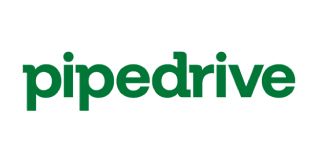In an increasingly competitive business world, running a successful marketing campaign is one of the main keys to attracting audience attention, increasing sales and building a strong brand. However, with so many strategy options and tools available, designing an effective marketing campaign can be a challenge. Below are some of the best tips that can help you design and execute a successful marketing campaign.
1. Determine clear goals
Every successful marketing campaign starts with a clear goal. Do you want to increase brand awareness, generate leads, or drive sales? By setting specific and measurable goals, you can focus more on designing the right strategy to achieve them. Make sure your goals are also realistic and in line with available resources, so you can measure the success of your campaign more easily.
2. Know Your Target Audience
One of the main keys to a successful marketing campaign is a deep understanding of who your target audience is. Conduct market research to identify your audience's demographics, preferences and needs. The more you understand who they are, the easier it will be for you to design relevant and engaging messages. Use this data to create more accurate segmentation, so your messages can be more personalized and suited to your target audience.
3. Use Interesting and Relevant Content
Content is the heart of every marketing campaign. To attract your audience's attention, make sure the content you create is relevant, interesting and provides value. Use various content formats such as articles, videos, infographics and social media to reach your audience in different ways. Don't forget to ensure that your content matches your company's brand voice and positioning, and is able to convey the main campaign message clearly.
4. Take advantage of Multi-Channel Marketing
In the digital era, relying on just one marketing channel is not enough. To reach a wider audience and increase the effectiveness of your campaigns, use a multi-channel marketing strategy. Combine various channels such as email marketing, social media, digital advertising, and content marketing to reach your audience at various touchpoints. Make sure the message you convey is consistent across all channels, but still tailored to the characteristics of each platform.
5. Optimize the Use of Data and Analytics
Data is a valuable asset in marketing campaigns. Use the data to track your campaign performance in real-time and make necessary adjustments. Analyzing data from various sources, such as user behavior, audience response, and ROI, can provide important insights that help you optimize your marketing strategy. By utilizing the right data, you can be more responsive to changes and increase the overall effectiveness of your campaigns.
6. Focus on Customer Experience
Customer experience is a key factor in the success of a marketing campaign. Make sure every customer interaction with your brand is positive and supports the campaign goals. From intuitive landing page design to responsive customer service, every element should be designed to provide a pleasant experience for your audience. A good experience not only increases the likelihood of conversion, but also builds long-term loyalty.
7. Test and Optimize Continuously
Don't let your campaign run without supervision. Conduct A/B testing of various elements in your campaign, such as headlines, calls-to-action, and visuals, to see which are most effective. Based on the test results, make necessary adjustments to improve campaign performance. Remember, optimization is an ongoing process, so keep testing and improving your strategy based on the data and feedback you receive.
8. Prepare a realistic budget
Budget is an important factor in running a marketing campaign. Make sure you set a budget that is realistic and in line with your campaign goals. Consider all the costs involved, from content production to advertising distribution. With the right budget, you can allocate resources more efficiently and ensure that your campaigns run as planned without sacrificing quality.
9. Engage Your Team Effectively
The success of a marketing campaign also depends on effective team collaboration. Involve your team in every stage of the process, from planning to execution. Make sure all team members understand the campaign goals and strategy, and have access to the necessary tools and resources. Good communication and teamwork will ensure that all campaign elements run smoothly and in coordination.
10. Evaluate and Learn from Campaign Results
After the campaign is finished, take time to evaluate the results. Analyze campaign results based on pre-defined metrics, such as conversion rate, ROI, and engagement. Identify what worked and what could be improved in the future. The learnings from each campaign will help you design better strategies in the future and continue to improve your marketing effectiveness.
Running a successful marketing campaign requires careful planning, a deep understanding of the audience, and the use of the right tools and strategies. By following the tips above, you can increase the chances of success of your campaign and achieve the marketing goals you have implemented.
Planning and evaluating marketing strategies has never been easier with Software Funnel from Thrive. With this powerful simulation tool, you can accurately simulate marketing plans, calculate costs transparently, and optimize your strategy for the best results. Funnel Software helps you reduce risk, save time, and maximize ROI from every marketing campaign you run.
No more guessing or making decisions based on intuition alone. With Funnel Software, you have the right tools to ensure that every step in your marketing plan is based on solid data and analysis.




























 Industrial Robotics Integration
Industrial Robotics Integration
 IT Outsourcing Service
IT Outsourcing Service
 Secure Internet SD-WAN Connection
Secure Internet SD-WAN Connection
 Digital Marketing Service
Digital Marketing Service









